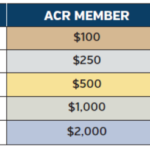During one advocacy visit to Congress, I had the chance to meet Rep. Pete Sessions (R-TX 32nd District [until Jan. 3, 2019]), who has always been a champion for healthcare reforms. Rep. Sessions made time in his busy schedule to spend with our group. The various topics discussed included putting patient care first by changing the policy of step therapy, also known as fail first, which forces rheumatologists to use therapies preferred by insurance companies rather than conventional wisdom and medical judgment, thereby delaying medical care and putting patient health at unnecessary risk. The need to streamline the prior authorization process was also discussed.
Millions of Americans, including children, suffer from arthritis and do not have access to specialist care due to rheumatology workforce shortages. Thus, we discussed how Congress can support policies to help expand the rheumatology workforce and manage this need. Increasing financial support for rheumatology fellowships and an expedited process for foreign physicians to work in the U.S. under the H-1B visa program would help tackle this shortage.
Reimbursement is on the decline, and this has affected our practice. We discussed ways Congress can help, such as with public service loan forgiveness. This is one viable option to help new rheumatologists pay off loans or reduce total loan payments.
The lack of adequate investment in medical research is also a concern. The good news: Collaborative efforts of the various rheumatology committees and Congress led to the approval of millions of dollars in research funding for arthritis.
During our entire interaction, Rep. Sessions showed a keen interest in being our liaison, taking our message to Congress and educating members on the various issues affecting rheumatologists and the barriers we must overcome to provide quality service to our patient population. It is very important that we build more bridges in places that matter the most, such as Congress, to establish a healthcare policy that works for both rheumatology professionals and patients.
I would strongly recommend every rheumatologist associate themselves with RheumPAC by volunteering and providing generous donations. For more information about RheumPAC, click here.
Disclaimer: Contributions to RheumPAC are used for political purposes and are not tax deductible. They must be voluntary and made with personal funds. Federal law prohibits contributions to RheumPAC from corporations, but ask us about the RheumPAC Advocacy Fund, which does support advocacy with soft dollars. Contributions to RheumPAC can only be made by U.S, citizens or permanent resident aliens.
